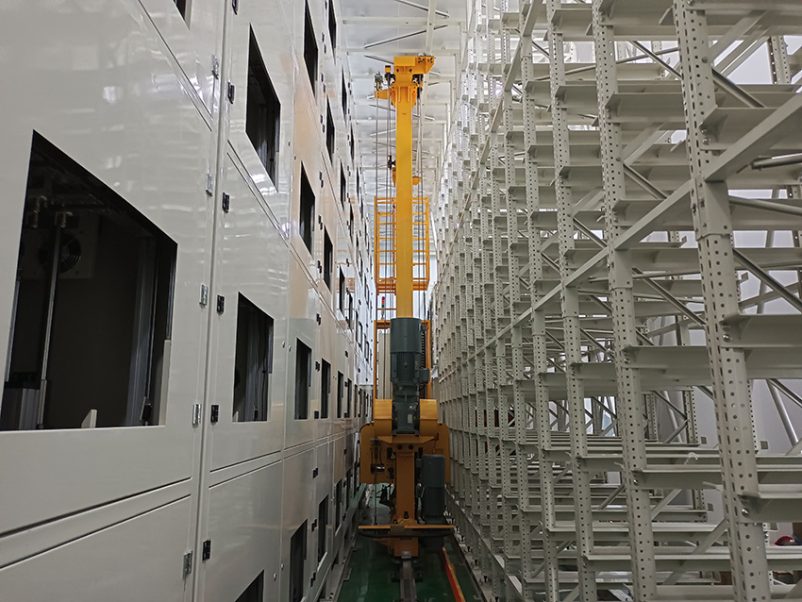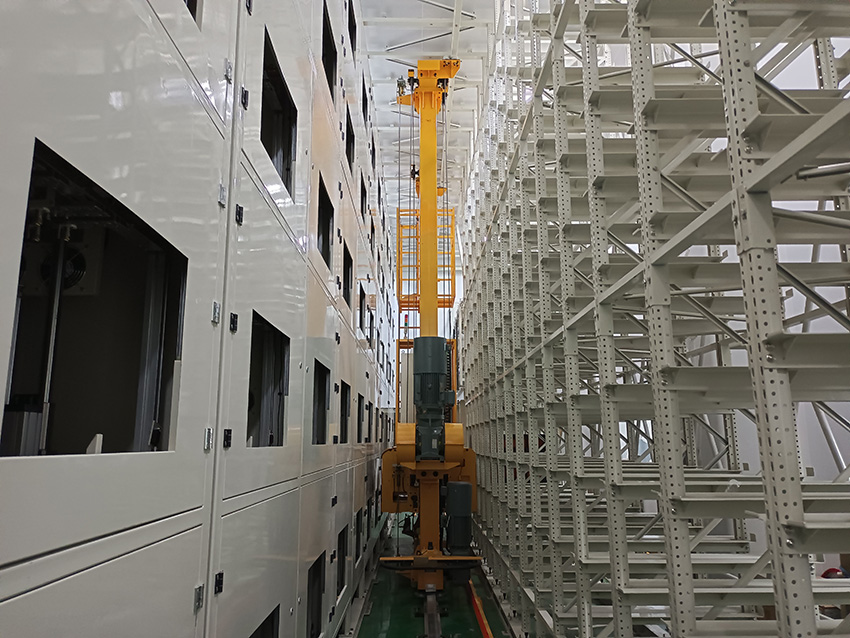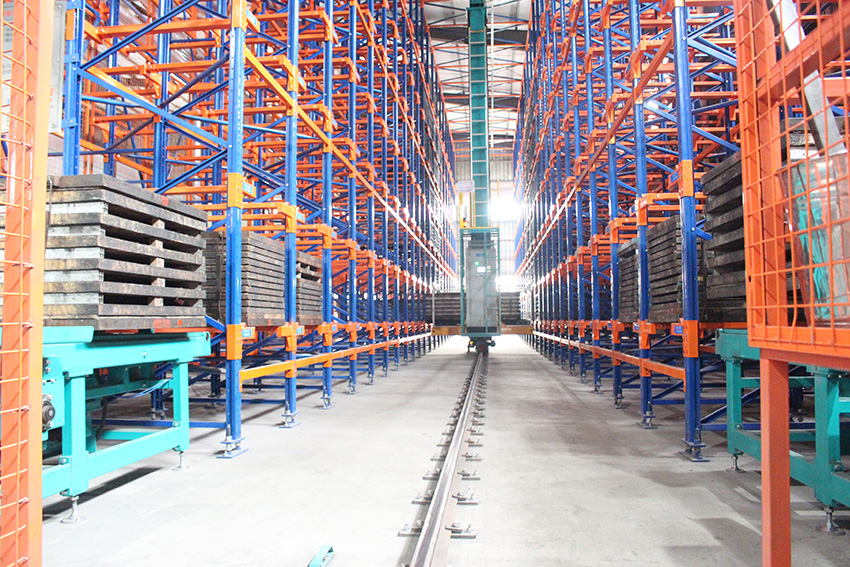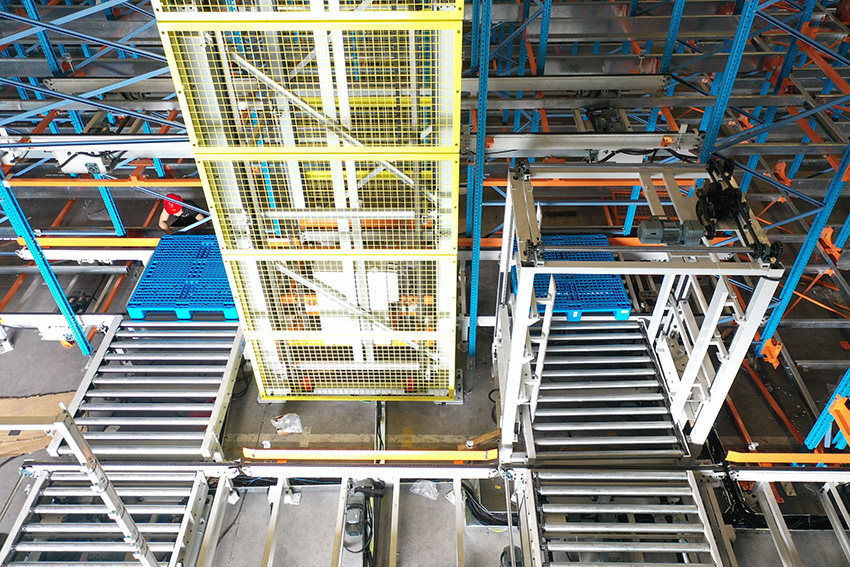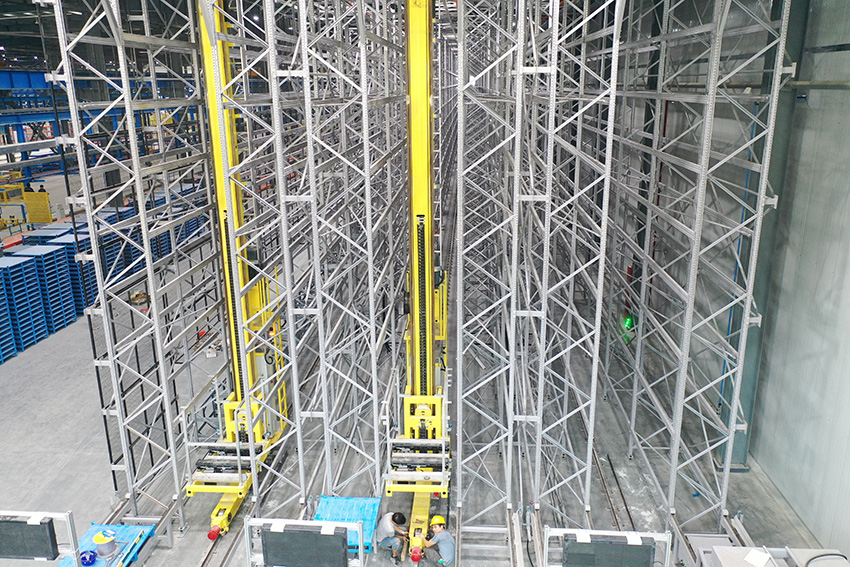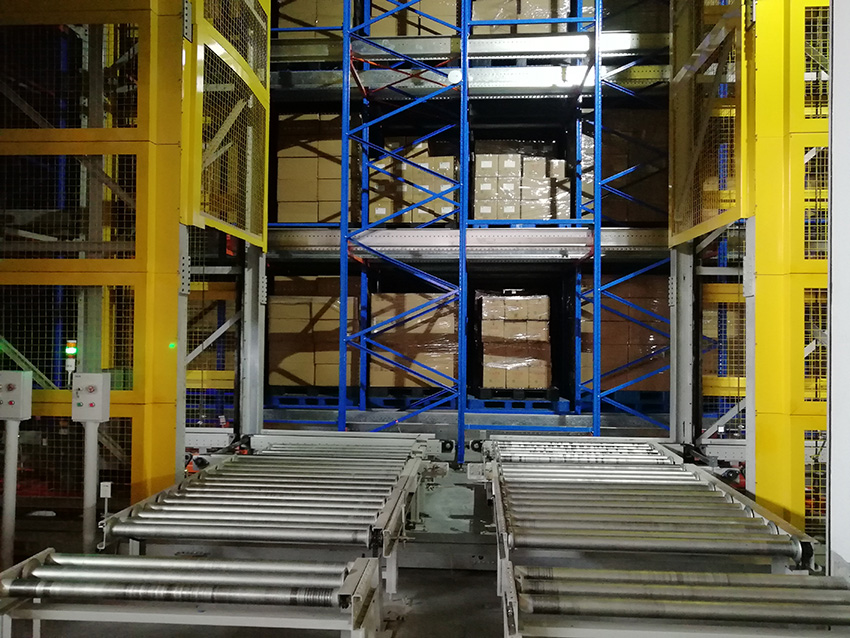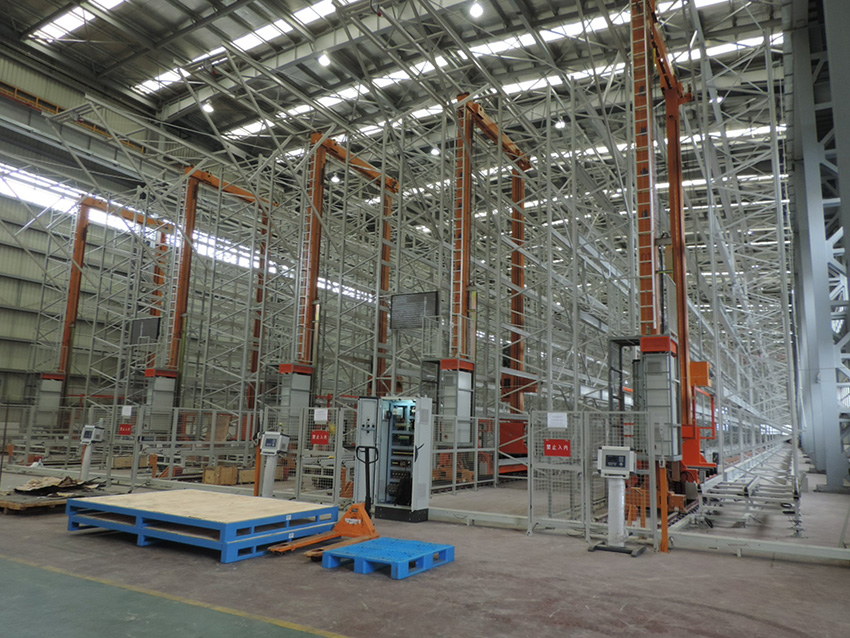1. Project Background
Customer Requirements: A leading lithium-ion battery manufacturer needs to build an intelligent logistics production line to meet the following requirements:
Production Requirements: Cover the entire process from cell manufacturing, module assembly, to battery pack integration, supporting mixed handling of coil materials (diameter 50–300 mm), cells (dimensions 50 × 30 × 10 mm), and modules (500 × 300 × 100 mm);
Efficiency Targets: Average daily production capacity of 200,000 battery cells, with a peak throughput of 500,000 cells per day;
Compliance Requirements: Anti-static (surface resistance ≤ 1×10⁵Ω), explosion-proof (oxygen concentration ≤ 1%), cleanliness (ISO Class 7), compliant with ISO 9001 and UL safety standards;
Cost Optimization: Reduce reliance on manual labor and lower cargo damage rate to below 0.05%.
2. Technical Highlights
Anti-static and Explosion-proof Design:
AGVs and shuttle carts are equipped with conductive tires (surface resistance ≤ 1×10⁵Ω), and logistics channels are paved with anti-static epoxy flooring;
Battery storage areas are equipped with inert gas protection (nitrogen concentration ≥ 99.99%), with oxygen concentration sensors providing real-time alarms.
High-Precision Environmental Control:
The battery cell drying room is equipped with an FFU laminar flow ventilation system (cleanliness ISO Class 5), with a dew point temperature ≤-40°C;
The module aging zone uses a hot air circulation system, with temperature uniformity ±0.5°C.
Flexible Production Scheduling:
The WMS supports dynamic adjustment of production plans (e.g., inserting urgent orders), with equipment changeover time <10 minutes;
AGV path planning algorithm optimization, with multi-machine collaboration efficiency improved by 30%.


